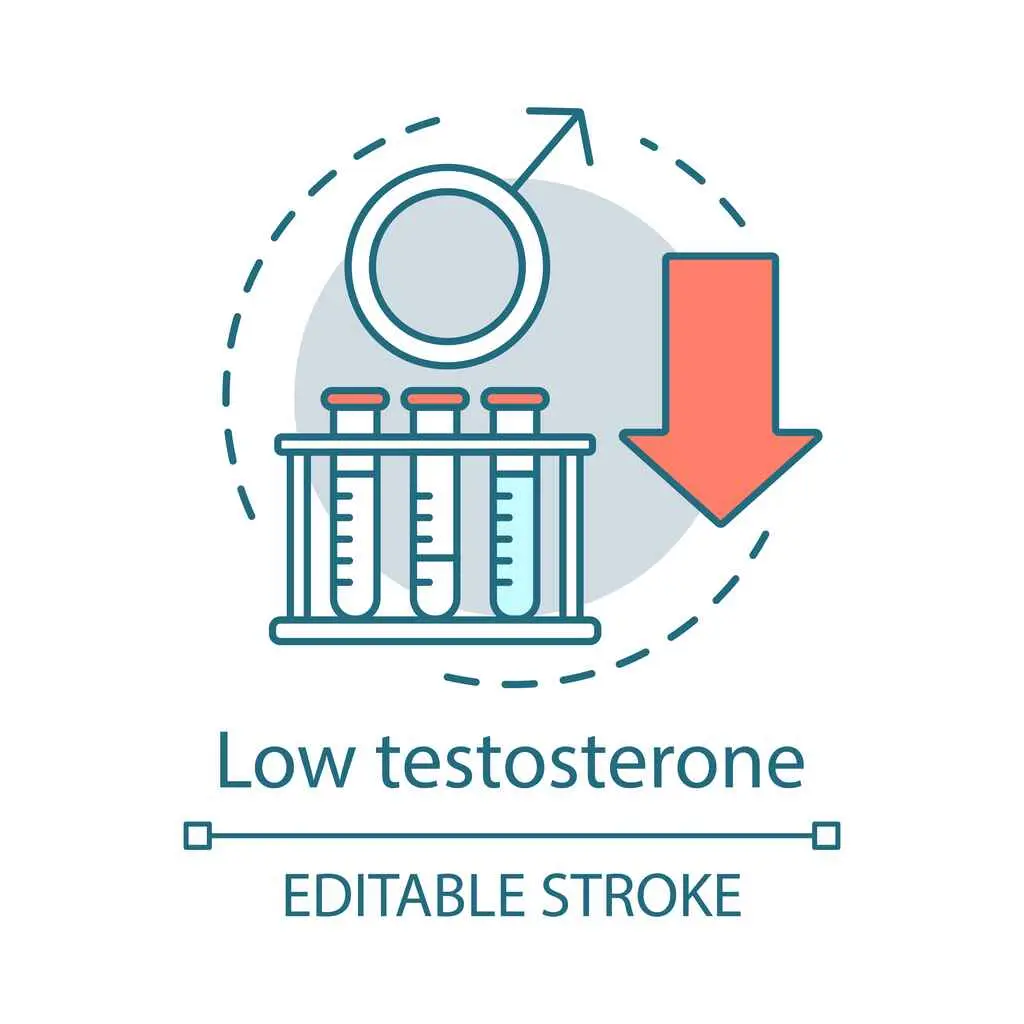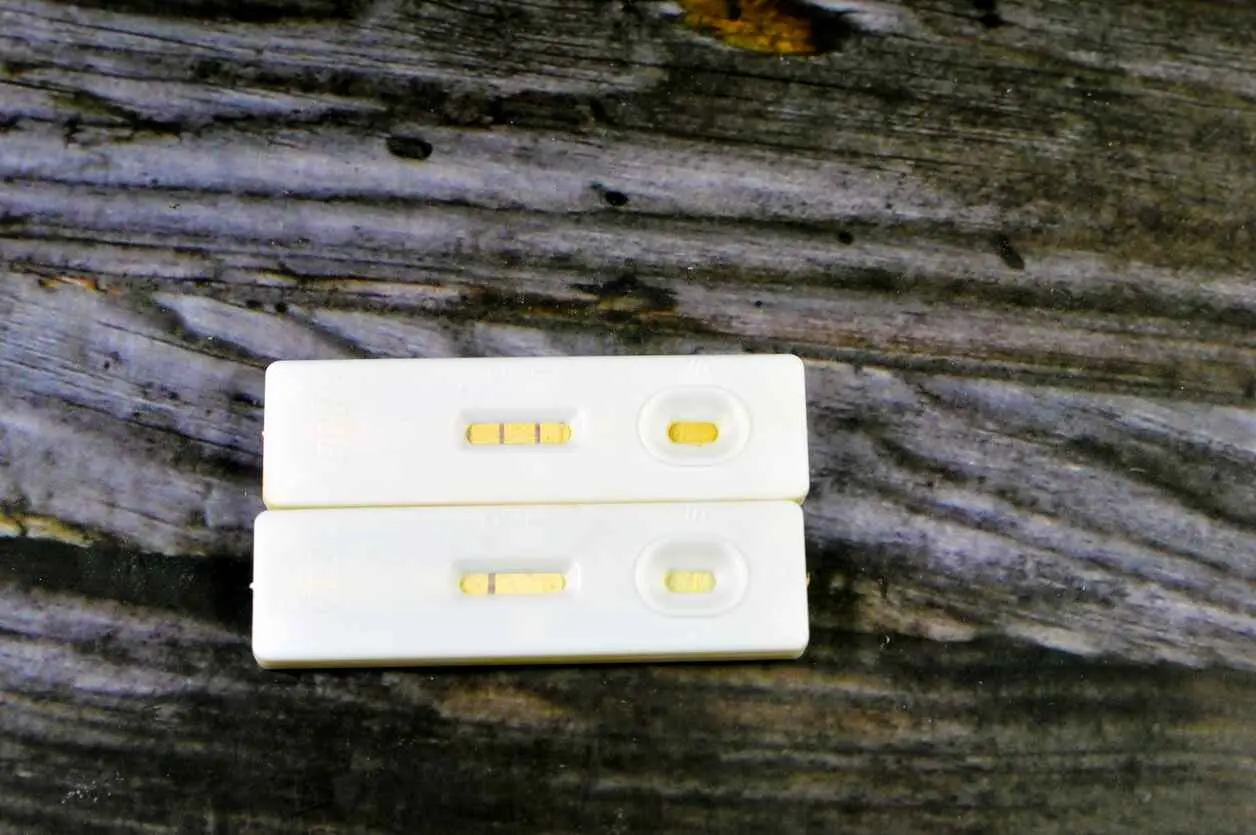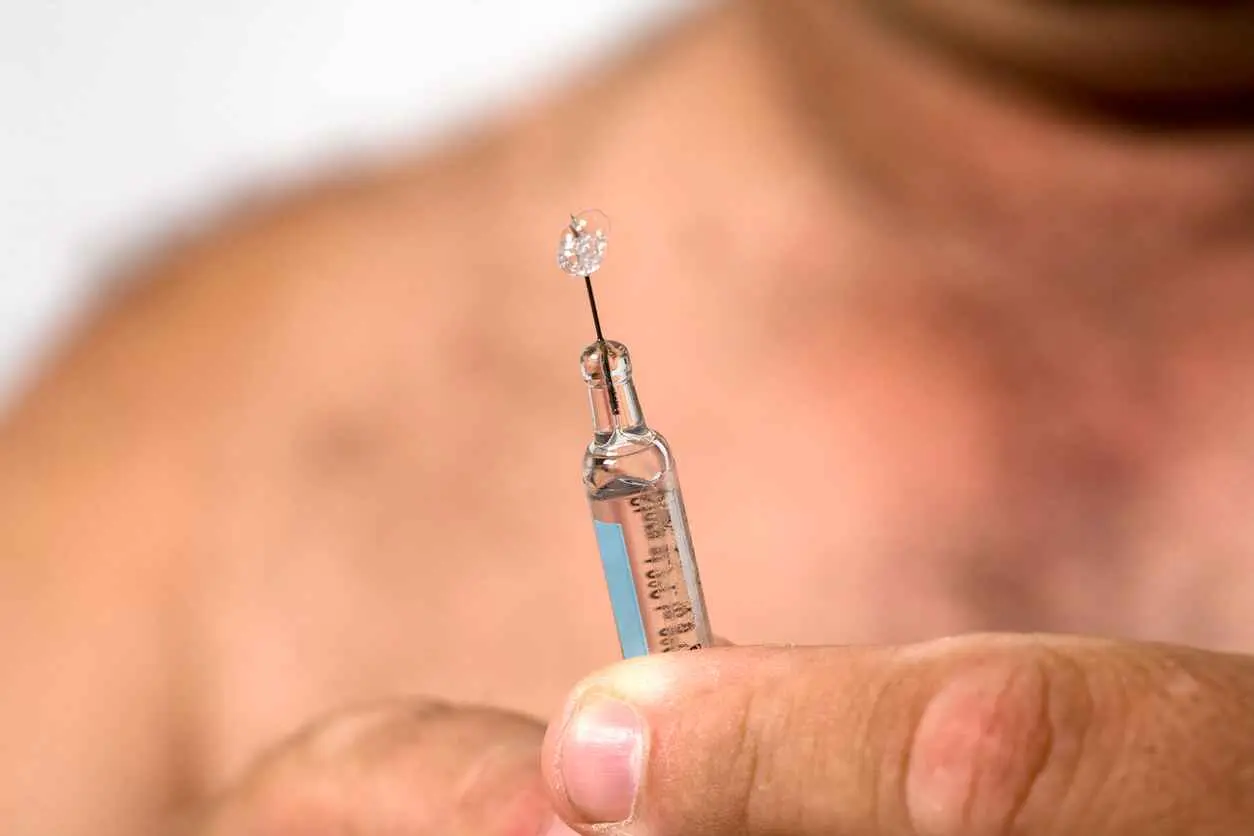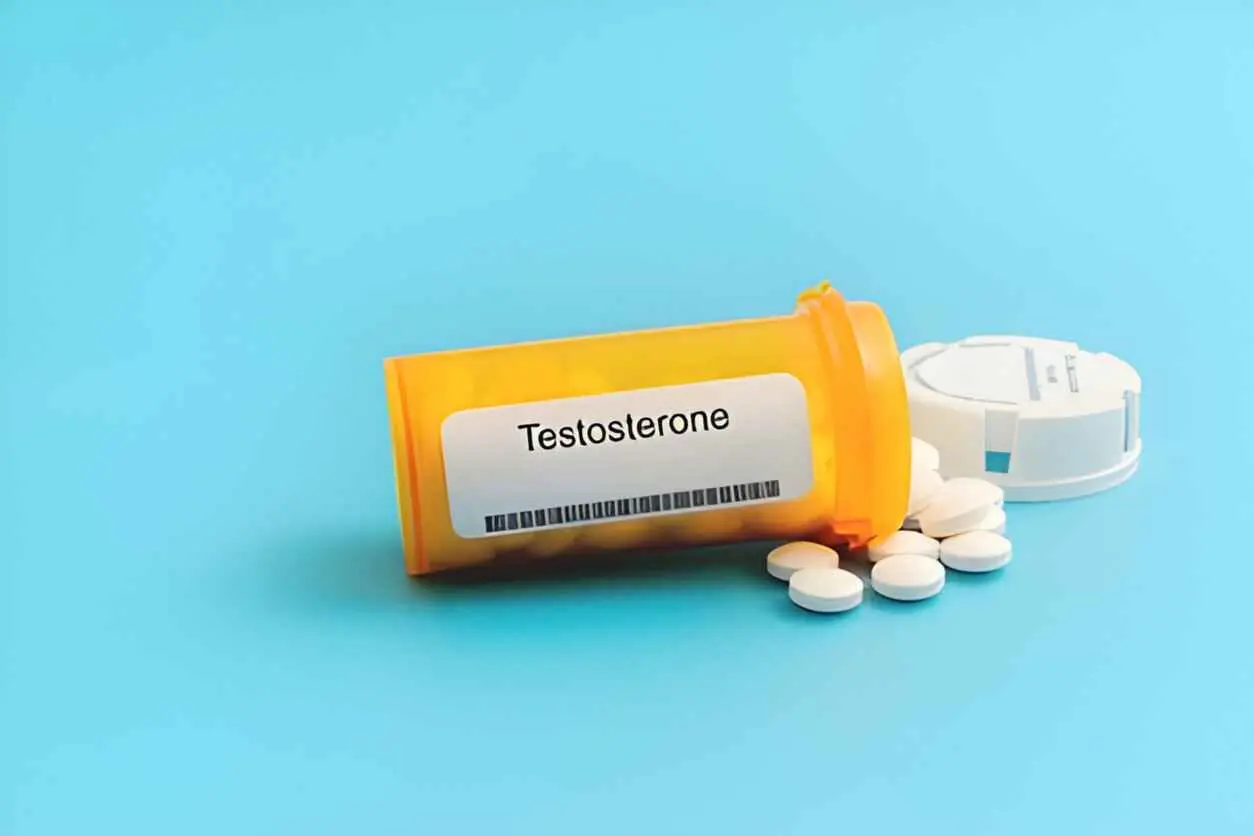
Fixing Low Testosterone: Strategies For Treatment And Lifestyle Changes
Fixing Low Testosterone: Strategies For Treatment And Lifestyle Changes
How Can You Fix Low Testosterone Naturally and Medically?
You can fix low testosterone by improving sleep, diet, and exercise or through testosterone replacement therapy (TRT) prescribed by a medical expert after testing.
Low testosterone is when the body doesn’t make enough of the hormone testosterone. This can lead to tiredness, low sex drive, mood swings, and trouble building muscle. It’s more common in men as they age, especially after the age of 45.
In this blog, we’ll explain how you can deal with low testosterone. We’ll look at medical treatments like testosterone replacement therapy (TRT), as well as simple lifestyle changes that may help your body make more testosterone naturally.
From eating the right foods and exercising to getting better sleep and managing stress, we’ll cover everything you need to know. Whether you’re already feeling the effects of low testosterone or just want to stay healthy as you age, this guide is here to help.
Let’s start by looking at how low testosterone is tested and what signs to watch out for.
How Do You Know If You Have Low Testosterone?
You can’t always tell if you have low testosterone just by how you feel. To know for sure, you need to examine the signs and consult with your doctor for a blood test.
Signs You Might Notice:
- You feel tired most of the time
- You don’t feel interested in sex
- You’re putting on weight, especially around your stomach
- You feel sad or moody for no reason
- You find it hard to build muscle or stay strong
- You forget things easily or can’t focus
- You’re not sleeping well
If you have a few of these signs, it’s a good idea to speak to a doctor.
What Happens at the Doctor’s?
The doctor will ask you questions and do a blood test to check your testosterone levels. This test is usually done early in the morning, when testosterone levels are highest. You may need to take the test more than once to be sure.
The doctor might also check:
- Other hormones in your body
- Your blood sugar and thyroid levels
- If you have sleep problems like sleep apnoea
- If any medicines you take could be causing the problem
This helps the doctor find the real cause and choose the best way to help you feel better.
How To Fix Low Testosterone: Effective Strategies
If you're dealing with symptoms of low testosterone or have been told you have hypogonadism (that's the medical term for it), you're probably looking for ways to boost your testosterone back to normal. Increasing your levels can help you feel more like your usual self by tackling those symptoms.
But there's no one-size-fits-all answer to fixing low testosterone. The best approach depends on what's causing your hormone levels to drop. In this article, we'll cover all you need to know about the reasons behind low testosterone and the different ways to address it, from changes in your lifestyle to possibly starting testosterone replacement therapy (TRT).
What Happens When A Man’s Testosterone Is Low? Understanding The Effects
It is common for men to experience a variety of signs and symptoms when their testosterone levels are low.
Some of these include, but are not limited to:
- Increased heart issues
- Reduced muscle mass
- Reduced hair growth
- Poor erection quality
- Low energy
- Poor sleep
- Body fat increases
- Low mood
- Poor digestion
- Hot sweats
- Low bone density
- Depression
- Reduced height
Low Testosterone In Males: What Causes It?
To address the issue effectively, it's essential to identify the cause of low testosterone symptoms. By doing so, you can take appropriate steps to improve your testosterone levels. The following are the leading causes of testosterone deficiency in men.
Testicular Problems
Primary hypogonadism is when your testicles aren't making enough testosterone, which is a crucial hormone for guys. Most of the testosterone in men is produced in the testicles. Sometimes, the testicles might have issues from birth; these problems might pop up during teenage years or develop later in life. Here are a few reasons why this might happen:
- Genetic conditions like Klinefelter syndrome.
- Testicles that haven't moved to where they should be.
- Injuries to one or both of the testicles.
- Catching a specific type of infection called mumps around puberty that impacts the testicles.
- Having too much iron in your blood is known as hemochromatosis.
Issues With The Hypothalamic-Pituitary Axis
Secondary hypogonadism is when the testicles are all good, but the problem lies in the brain, particularly in areas called the hypothalamus and the pituitary gland. These parts of the brain tell the testicles how much testosterone to make, using particular hormones called FSH (follicle-stimulating hormone) and LH (luteinising hormone).
In guys with secondary hypogonadism, their testicles are ready to work, but they're not getting the proper instructions from the brain. Here's why this could be happening:
- Genetic conditions like Kallmann syndrome.
- Tumors in the pituitary gland or nearby brain areas.
- Illnesses that cause swelling in the body, like sarcoidosis and tuberculosis.
- HIV (human immunodeficiency virus) and AIDS.
Certain Therapies & Medications
Certain medications can impact the production of testosterone in men. Primary hypogonadism can be caused by cancer treatments such as chemotherapy or radiation, which can affect the testes. The hypothalamic-pituitary axis can be affected by opiate pain medications and hormonal therapies, leading to testosterone deficiency.
Obesity & Weight Gain
The connection between testosterone levels in your blood and your body weight is reciprocal. When testosterone levels drop, you might gain more fat and lose some muscle, which changes how your body is built. Guys who are overweight or obese can have up to 30% less testosterone than guys who are at a healthy weight.
Figuring out the exact cause-and-effect relationship between low testosterone and gaining weight is tricky. But there may be a link between eating poorly, not moving much, putting on extra weight, and not having enough testosterone.
Drug & Alcohol Usage
Using drugs and drinking a lot of alcohol can mess up how your testicles, pituitary gland, and hypothalamus work. For example, drinking too much alcohol can harm special cells in the testicles that make testosterone and lower the levels of certain hormones from the pituitary gland, which leads to low testosterone.
Type 2 Diabetes
If you have type 2 diabetes, it doesn't mean you'll have low testosterone, but you're more likely to. Men with diabetes are twice as likely to have low testosterone compared to men without diabetes.
This might be because many people with diabetes also struggle with being overweight. Still, studies now show that having low testosterone could also make you more likely to get diabetes, even if you don't gain weight. This shows how important it is to eat healthy and exercise to keep your testosterone levels normal.
How Can I Fix Low Testosterone Levels?
There are multiple methods to address low testosterone levels and alleviate any related symptoms. These methods range from undergoing testosterone replacement therapy to implementing lifestyle changes daily. The following are the main ways to boost testosterone levels.
Testosterone Replacement Therapy
Testosterone Replacement Therapy (TRT) is a standard treatment for low testosterone. It involves supplementing your body with testosterone to restore your natural levels. There are several ways to do TRT:
- Skin Patches: You apply a patch to your skin, such as on your back, stomach, thighs, or arms, every night and change it daily. You have to stick it on different spots each time. The patch slowly releases testosterone into your skin, which then enters your bloodstream.
- Gels and Creams: You rub these onto your skin, and the testosterone is absorbed into your bloodstream. But be careful—others can accidentally touch the gel or cream and get testosterone on them.
- Oral Tablets: These are pills you swallow that contain testosterone. They get into your bloodstream through your stomach. These are prescription pills, not over-the-counter supplements.
- Pellets: A healthcare provider puts these tiny pellets under your skin, usually around your hip or buttocks. They release testosterone slowly over 3 to 6 months. You'll need new pellets after that.
- Injections: You can get testosterone shots in your muscles or just under your skin. How often you need a shot depends on the type of testosterone. It could be every week or every few months.
TRT Options Compared
|
TRT Method |
Dosing |
Pros |
Cons |
|
Gels/Creams |
Daily |
Easy to use, non-invasive |
Risk of transference to others |
|
Patches |
Daily |
Convenient, steady hormone release |
Can irritate skin |
|
Injections (weekly/monthly) |
Weekly or bi-weekly |
Fast-acting, less frequent dosing |
Possible hormone fluctuations |
|
Daily Injections |
Daily |
Stable hormone levels |
Requires daily compliance |
|
Oral Tablets |
Daily |
Needle-free, easy to take |
Not suitable for age-related low T |
|
Pellets |
Every 3–6 months |
Long-acting, low-maintenance |
Needed minor surgery, risk of infection |
Lifestyle Changes
Gaining too much weight, not staying active, drinking a lot of alcohol, and taking some medicines can all cause low testosterone levels. But changing up your lifestyle can boost your testosterone without needing meds. Here's how:
- Eat Healthy: Stick to a balanced diet to keep a healthy weight and reduce the risk of diabetes. Some research suggests that foods like seafood, ginger, oysters, pomegranates, and leafy greens help boost your testosterone.
- Exercise Frequently: Hitting the gym or exercising at home a few times a week can help you shed fat and up your testosterone, even if you don't lose weight. Weightlifting is especially great for a quick testosterone boost right after your workout and for building muscle over time.
- Cut Back On Alcohol: Drinking less or stopping altogether can bump up your testosterone levels after a few months. Try to limit yourself to 1-2 drinks a day max to keep your hormones in check.
- Keep Stress in Check: Stress can lower your testosterone levels by causing your body to produce more cortisol, the stress hormone. Managing stress through exercise, a balanced diet, meditation, and mindfulness can help maintain steady testosterone levels.
- Sleep Well: Stress and sleep issues often come together, and not getting enough Zs can lead to low testosterone. Ensure you get at least seven hours of sleep each night. Having good sleep habits can help improve your sleep quality.
Treat Underlying Health Conditions
It's possible to restore testosterone levels if an underlying health condition is the cause of testosterone deficiency. One example is when pituitary tumours affect serum testosterone concentrations.
By removing or shrinking these tumours, normal pituitary functioning and signalling can be restored, increasing testosterone levels. The available treatment options for this condition include medication therapy, radiation therapy, or surgical removal.
What Is The Best Treatment For Low Testosterone?
Picking the proper treatment for low testosterone depends on each person's situation, including their daily routine, their body's makeup, and their response to different treatments. Since there are many reasons why someone might have low testosterone, there isn't one "perfect treatment" that works for everyone.
Testosterone Replacement Therapy (TRT) is often the go-to solution, especially for guys whose testosterone levels have dropped earlier than usual. But the best way to do TRT can vary from one guy to the next. For example:
- Testosterone Gels and Patches: These are convenient options for individuals who prefer not to use needles and those who frequently travel and can't always visit a doctor for a shot. They must be used daily and might be less effective than other TRT methods.
- Weekly or Monthly Injections: These can be a good fit for individuals with busy schedules, as they don't require daily reminders. The downside is that these injections can cause hormone levels to swing, which might lead to side effects for some.
- Daily Injections: These keep testosterone levels stable and usually come with fewer side effects, but getting a shot every day can be a hassle for many, making it hard to stick with the treatment.
- Testosterone Pills: These can be as effective as injections for some and are great for those who dislike needles. However, they're not officially approved for treating low testosterone caused by ageing.
Sometimes, TRT might not be the best option, particularly for guys whose low testosterone is just part of getting older. These men might be encouraged to try lifestyle changes first since TRT has its risks. This is especially true for men who have had prostate cancer, as TRT could potentially make the cancer come back.
For men who are overweight, not very active, or drink too much, making healthier life choices might be all it takes to get their testosterone levels back up without needing medical treatment.
FAQs: Fixing Low Testosterone
What are the first signs of low testosterone in men?
The first signs of low testosterone in men often include low sex drive, tiredness, mood changes, and trouble building muscle. These symptoms can be mild at first, but they may get worse over time. If you notice these changes, it’s worth getting a blood test to check your hormone levels.
Can low testosterone cause weight gain and belly fat?
Yes, low testosterone can lead to weight gain, especially around the belly. This happens because testosterone helps control fat storage and muscle growth. Making healthy lifestyle changes for low testosterone can help improve your body shape and energy levels.
How can I naturally increase testosterone levels without medication?
You can naturally boost testosterone levels without medication by eating a balanced diet, getting regular exercise, sleeping well, and reducing stress. Resistance training and healthy fats are beneficial. These lifestyle changes to raise testosterone can make a big difference over time.
Is testosterone replacement therapy safe for older men?
Testosterone replacement therapy (TRT) for older men can be safe when managed by a doctor. Regular check-ups and blood tests are essential to watch for side effects like high red blood cell count or changes in prostate health. Always discuss the risks and benefits before starting treatment.
What foods help raise testosterone levels naturally?
Foods that may help increase testosterone naturally include eggs, oily fish, spinach, nuts, seeds, and foods high in zinc and vitamin D. A diet to support healthy testosterone should also limit processed foods, sugar, and too much alcohol.
How is low testosterone diagnosed by doctors?
Doctors diagnose low testosterone through symptoms and blood tests, usually taken early in the morning. They may check other hormones, blood sugar, and sleep patterns too. If testosterone is low on more than one test, your doctor may suggest treatment options.
Can stress lower your testosterone levels?
Yes, long-term stress can lower testosterone because it increases cortisol, a hormone that interferes with testosterone production. Stress management for hormone balance is key—activities such as deep breathing, walking, or getting enough sleep can help restore levels.
Does exercise help boost testosterone levels?
Exercise, particularly strength training, is one of the most effective natural ways to increase testosterone levels. Lifting weights and high-intensity interval training (HIIT) can help increase testosterone levels and improve mood, muscle strength, and energy over time.
Is Testosterone Replacement Therapy Right For You?
TRT can be a solid option for dealing with low testosterone, but it's not the best choice for everybody. If you're considering TRT, there are various meds and ways to take them. Plus, you might need an extra treatment like hCG if you want to keep your fertility.
That's why talking with a doctor is essential to see if TRT is right for you. Based on your situation, Doctors can help determine the best way to boost your testosterone.
If you need assistance or have questions about testosterone replacement therapy, Androgenix is here to help. Feel free to get in touch for guidance and support.
References
Emanuele, M. A., & Emanuele, N. V. Alcohol’s Effects on Male Reproduction.


